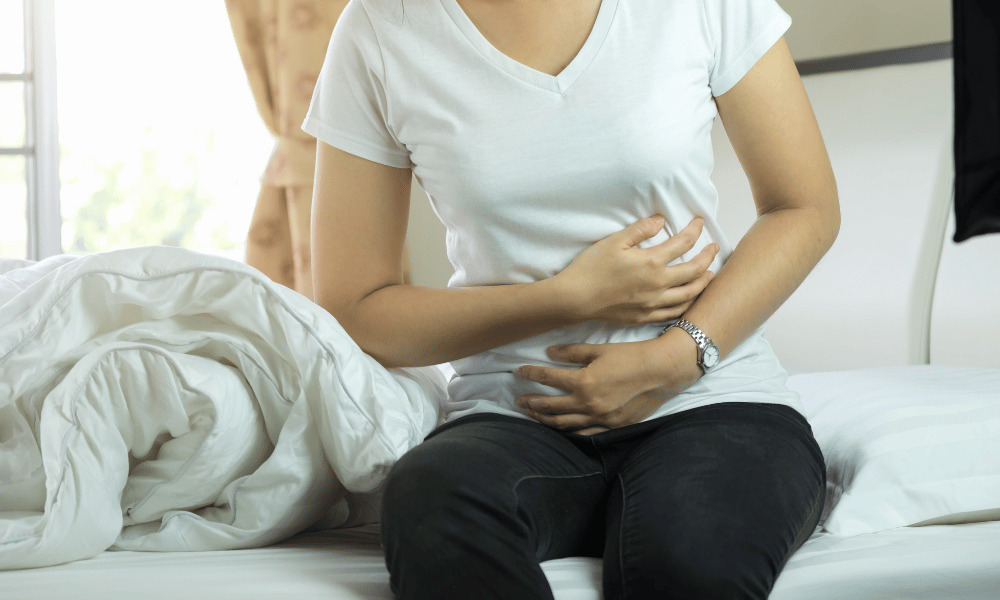
Is Diarrhea a Sign of Pregnancy Implantation?
Understanding Early Pregnancy Signs
Is Diarrhea a Sign of Pregnancy Implantation? Early signs of pregnancy can vary widely among individuals and may include symptoms such as missed periods, fatigue, nausea, increased urination, and breast tenderness1. Some women might also experience light spotting or mild cramping, known as implantation bleeding and cramping2.
The Intriguing Link Between Diarrhea and Pregnancy
Diarrhea is not typically considered a sign of pregnancy implantation. However, some women may experience changes in bowel movements during early pregnancy due to hormonal shifts3.
During pregnancy, the body produces higher levels of the hormone progesterone, which can slow down the digestive process and lead to constipation4. On the other hand, changes in diet or the stress of knowing you are pregnant can sometimes lead to diarrhea5.
While some sources suggest that diarrhea can occur around the time of implantation due to these hormonal changes6, it’s important to note that diarrhea alone does not confirm pregnancy. It is merely a symptom that may or may not indicate pregnancy7.
Moreover, many other factors can cause diarrhea, including dietary changes, infections, certain medications, and underlying health conditions8. Therefore, if you’re experiencing diarrhea, it’s crucial to consider these other potential causes.
Some women may experience diarrhea in early pregnancy, it is not typically a sign of pregnancy implantation. If you suspect you might be pregnant, look out for more common signs such as a missed period or take a pregnancy test for confirmation.
The Overlap: Diarrhea and Pregnancy Implantation

While some women experience diarrhea in early pregnancy due to hormonal changes, it’s not typically associated with implantation. Hormonal fluctuations, particularly in progesterone, can affect the digestive system. However, these changes are more likely to cause constipation rather than diarrhea1.
Debunking Common Myths: Diarrhea and Implantation
There is a common misconception that diarrhea is a sign of pregnancy implantation. This belief stems from the fact that hormonal changes around the time of conception can cause stomach issues2. However, experts generally do not consider diarrhea as a reliable indicator of pregnancy. Many factors can cause diarrhea, including diet, infection, certain medications, and stress3.
Exploring Hormonal Fluctuations During Implantation
Pregnancy triggers a surge in multiple hormones, including human chorionic gonadotropin (hCG) and progesterone. The increase in progesterone levels can slow down the digestive process, potentially leading to constipation4. Some women may experience diarrhea, but this is more likely due to other factors such as dietary changes or a reaction to prenatal vitamins5.
while hormonal changes in early pregnancy can lead to digestive issues, diarrhea is not a direct sign of pregnancy implantation. If you suspect you might be pregnant, look out for more reliable signs, such as a missed period, and consult with a healthcare provider.
Surveying the Studies: Research Findings

From a review of multiple studies, it is clear that diarrhea in pregnancy has been a subject of interest and investigation. However, the relationship between diarrhea and pregnancy implantation remains less clear.
Existing Research on Diarrhea and Pregnancy
Several research studies have explored the topic of diarrhea and pregnancy, but not necessarily in relation to implantation. A study published in the American Journal of Public Health highlights how malnourished infants and young children in the slums of Dhaka, Bangladesh suffered from diarrhea caused by dirty water1. Another study in ScienceDirect discusses the experiences of women who became pregnant after bariatric surgery, some of whom experienced excessive vomiting and diarrhea2.
However, these studies focus more on diarrhea during pregnancy or as a result of other health conditions, rather than as a symptom of pregnancy implantation.
Correlations vs. Causations: Understanding the Difference
While some women might experience diarrhea around the time of implantation, it’s important to understand the difference between correlation and causation.
Correlation means that two events or phenomena often occur together, but one does not necessarily cause the other. For example, a woman might experience diarrhea around the time of conception due to dietary changes or stress, which is not directly caused by the implantation process itself3.
On the other hand, causation means that one event directly results in the other. At this point, existing research does not establish a causal link between diarrhea and pregnancy implantation4.
while there is ongoing research into various aspects of pregnancy, including digestive issues such as diarrhea, it’s important to note that these are generally not considered direct signs of pregnancy implantation.
Seeking Medical Advice: When to Be Concerned

Experiencing diarrhea during pregnancy can be concerning, but it’s important to understand when it’s normal and when it requires medical attention.
Normal vs. Abnormal Diarrhea During Pregnancy
Diarrhea during pregnancy is often caused by hormonal changes, dietary shifts, increased water consumption, or prenatal vitamins1. In some cases, it can also be a sign of gastroenteritis2.
However, there are instances when diarrhea could indicate a more serious issue. If your diarrhea is accompanied by severe cramping, contractions, or if you notice dark green or black stools or blood in your stool, it’s crucial to seek immediate medical attention3. These symptoms could be signs of preterm labor or other significant health concerns4.
Consulting Healthcare Professionals: Best Practices
If you’re experiencing diarrhea during your pregnancy, it’s always a good idea to consult with your healthcare provider. They can provide guidance on safe treatments and possible dietary adjustments to help manage your symptoms5.
while diarrhea can be an uncomfortable aspect of pregnancy, it’s not typically a cause for alarm. However, if you notice any unusual symptoms or if your diarrhea is persistent, don’t hesitate to seek medical advice
Conclusion
The notion of diarrhea being a sign of pregnancy implantation is not widely recognized or supported by medical professionals. While some women may experience diarrhea in early pregnancy, this is typically due to hormonal changes, dietary shifts, or other factors rather than a direct result of implantation1 2 3.
It’s crucial to note that diarrhea alone does not confirm pregnancy; it is merely a symptom that may or may not indicate pregnancy4. Hormonal changes during pregnancy can affect the muscles in the intestines and slow down the movement of food, which can lead to diarrhea.
However, diarrhea is not a specific symptom related to implantation. In fact, many different factors can cause diarrhea, including diet, infection, certain medications, and stress6 7.
If you’re experiencing diarrhea and suspect you might be pregnant, look out for more reliable signs, such as a missed period, and consult with a healthcare provider.
YOU MAY ALSO LIKE:
Combating Postpartum Hair Loss : Postpartum hair loss home remedies
“Bump-Friendly Remedies: Natural Ways to Relieve Cough during Pregnancy”
“Lemon Juice and Pregnancy Tests” will lemon juice make a pregnancy test positive
Early Signs of Pregnancy: Understanding presumptive signs of pregnancy
Can You Take Theraflu While Pregnant? A Comprehensive Guide for Expecting Mothers
18 Weird Uncommon Pregnancy Symptoms in the First Month
Why to avoid banana during pregnancy? The Surprising Facts
Are Enemas Safe During Pregnancy? | Risks, Benefits, and Alternatives
Goji berries during pregnancy: Is it safe?
Milk Thistle for Breastfeeding: Nurturing Motherhood Naturally
Dark Belly After Giving Birth: The Importance of Belly Skin Care After Childbirth
Navigating Pregnancy Safe Hairspray: A Comprehensive Guide
FAQS
Can diarrhea be a reliable sign of pregnancy?
No, diarrhea is not a reliable sign of pregnancy. It is a symptom that can be caused by many different things.
How do hormonal changes affect the gastrointestinal system?
Hormonal changes can affect the gastrointestinal system in a variety of ways, including changes in motility, secretion, inflammation, and pain perception. The effects of hormonal changes on the gastrointestinal system can vary from person to person. If you are experiencing gastrointestinal symptoms that are associated with hormonal changes, talk to your doctor.
Is it normal to experience diarrhea during implantation?
It is not common to experience diarrhea during implantation. Implantation is the process by which the fertilized egg attaches to the lining of the uterus. It usually occurs 6-12 days after ovulation. While some women may experience mild digestive symptoms during implantation, such as bloating, gas, or cramping, diarrhea is not a common symptom
When should I seek medical attention for pregnancy-related diarrhea?
It is important to seek medical attention for pregnancy-related diarrhea if it is severe or persistent. Severe diarrhea is defined as having six or more loose stools in a 24-hour period. Persistent diarrhea is defined as lasting for more than 48 hours.
